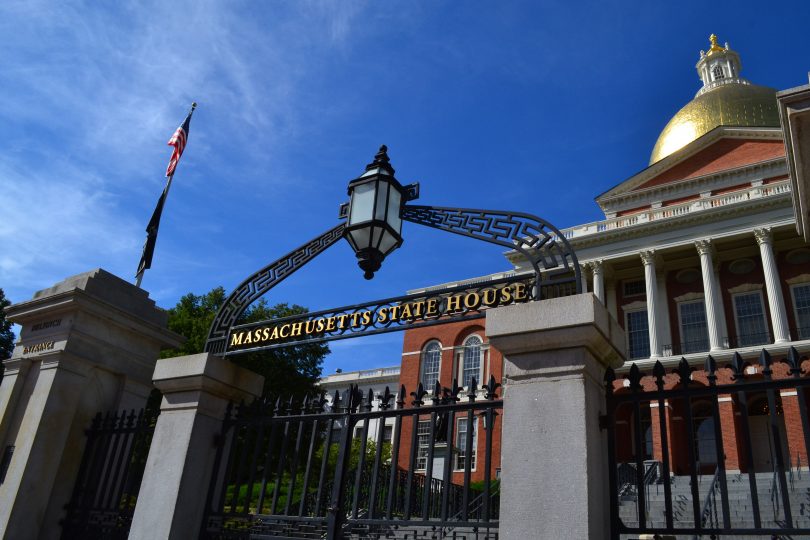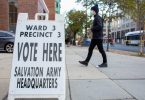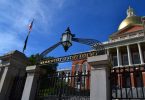By Mutian Qiao
Boston University Statehouse Program
BOSTON – Last year, as the Lunar New Year unfolded, it was swiftly overshadowed by the global COVID-19 pandemic that has been marked by a spike of anti-Asian bias and a rise of discrimination and violence against Asian-Americans.
Spurred by then-President Donald Trump and what observers labeled as xenophobic speech, racism overwhelmed the Asian community nationwide. Since March 19, 2020, when the first hate incident case was reported to Stop AAPI Hate, the number of cases has reached 3,795 at the end of February 2021 – eight times the previous year. And from February to June this year, it tripled to 9,081.
Manny Chong, a local Stop AAPI Hate advocate and student at Northeastern University, said even though most of the hate incidents occurred in California and New York, Massachusetts was still impacted.
“From the news, people might know those attacks took place in New York or Los Angeles,” said Chong. “But that’s not the case. I have seen people shouting racial slurs at Asians, pushing them to the ground. Massachusetts is not an exception.”
“Although only 264 were from Massachusetts, the Asian community here was still shocked. They were afraid of going out, and worried that wearing masks would get them in trouble.”
When elderly Asians were attacked, the situation quickly escalated.
In January, Vicha Ratanapakdee, an 84 year-old Thai-American man from San Francisco, was forcefully pushed to the ground and died after being hospitalized; within two weeks, 64 year-old Filipino-American Noel Quintana was attacked when boarding a New York City subway, and his face slashed by a box cutter.
The fear and anger accumulated across the Asian communities in the U.S. Local and out-of-state activists gathered hundreds of people at the Boston Common on March 14, commemorating the lost lives and calling to defend the elders and stop anti-Asian racism.
“What struck me the most was that few passengers helped them when they were attacked,” said Will Lex Ham, Executive Director of Asians in America. “Even five minutes could be eternal to the elders, but they just left them there. We must stay together to protect them.”
Shaken by the assaults, Asian families in Boston’s Chinatown tried to persuade their elders to stay home.
Larry Young, a resident of Chinatown for more than two decades, said that his children asked him to avoid going out, in case of potential physical assaults.
“My children kept me home for two weeks,” Young said. “They wouldn’t let me do anything out. I don’t want them to worry about my safety, so I didn’t go out … but it was miserable.”
In response to the rising violence on Asian elders, the Chinese American Heritage Foundation began to give out yellow whistles at multiple rallies, hoping the alarming sound would call out violence whenever it happens.
Although less than 3% of the 264 Massachusetts cases involved physical assaults, according to Stop AAPI Hate, other forms of hate incidents still troubled the local Asian residents, among which verbal harassment and shunning were the most common – amounting to 90% of the cases.
Mia Robinson, a first-generation Chinese immigrant who lives in Worcester, faced a man who verbally harassed her and her colleagues in their bubble tea shop. They did not confront him, and called the police, but the suspect left before the police arrived.
“I think we’re right not to confront him,” said Robinson. “We wouldn’t know if he was gonna attack us. The police couldn’t find any suspect. There’s nothing we can do.”
When asked if she had faced similar incidents, she said that some people gave her “strange looks” seeing her in mask, and avoided her on the streets. She recalled that she has never been physically attacked, but people’s bias upsets her.
She added, “I came with my family when I was six. I have been moving from town to town, and they were predominantly white, but nothing like this ever happened to me.”
The killing of six Asian women at massage parlors in the Atlanta area pushed the anti-racism campaign to its peak. Candlelight vigils were held in multiple cities in the greater Boston area, and many public figures, including city councilors Michelle Wu, Andrea Campbell, Annissa Essaibi George and Ed Flynn, commemorated the victims and called out to end anti-Asian racism.
In Wu’s statement on Twitter, she said the shooting was “part of a long history of racism in America,” and added, “Growing up as the daughter of immigrants from Taiwan, some of my most vivid childhood memories involve racist encounters with strangers.”
“We will #StopAsianHate and combat racism by meeting this moment, by building a city for everyone, by transforming our systems to see and value every life,” she wrote.
Statewide, multiple cities and police departments issued statements, denouncing racism against Asian-Americans.
Cambridge Mayor Sumbul Siddiqui called for more support to the Asian community during a candlelight vigil, saying “we have to stand up to them, listen to them, and call out hatred. It’s important to stand with each other.”
The Lowell Police Department said in a statement that “violence against individuals because of their race or background can never be tolerated,” and promised to “have increased police presence at locations and areas that could potentially be targeted.”
Ryan Doan Nguyen, a freshman at Harvard University and an organizer of Boston’s Stop AAPI Hate rallies, said that the pandemic and anti-Asian racism might reshape Asian-Americans’ mindset in a long-term.
“Before the pandemic, many Asian-Americans weren’t aware about the anti-Asian racism,” said Nguyen, who came from a Vietnamese-Laotian refugee family in Worcester. “Especially new immigrants. Now they begin to learn that their lives are under threats, and they have to stay together.”
He pointed out that Asian-Americans became a more united group because of the external pressure brought by the massive assaults.
Before the pandemic, the so-called Asian community tended to divide itself by ethnicities. In Massachusetts, there are 19 major Asian ethnicities under the Asian race category, speaking different languages, and some of their home countries are at war.
He recalled how the Asian groups used to isolate themselves from other ethnicities.
“Back then, we just stayed in our own part of town,” he said. “We didn’t want to support others’ business, or help each other out. We didn’t even mention ‘Asian-American’ that often. We were just Vietnamese, Chinese, or Koreans.”
During the pandemic, the situation almost reversed. Although the Stop AAPI Hate annual report says 43.5% of the attacks targeted Chinese-Americans, followed by 16.8% focused on Koreans and 9.1% on Filipinos, the violence launched on all Asian groups indiscriminately changed their perceptions of Asians, breaking their isolation and filling the ethnic gaps between each other.
Asian-Americans in Massachusetts soon mobilized. Rallies were held in Boston, Cambridge, Framingham, Worcester, and Lowell, involving many ethnicities and bringing a full spectrum of the solidarity among the community.
Rothanak Sarath, a member of the Lowell’s EAST Movement (Every Asian/American/Ally Stand Together Movement), said that the diversity at Stop Asian Hate Lowell rally stood as a proof of the alliance that Asian people have formed in Massachusetts.
Flooding into Lowell to call for an end of anti-Asian racism, people of different ethnicities showed up with national flags, representing their origins. The EAST movement estimated that more than 500 people joined the rally and marched from the Tsongas Center at UMass Lowell to the City Hall, and demonstrated there “to prove that the Asian Americans can come together.”
“When I see people came in from all over America, and marching people chanting ‘This is what a community looks like’, I know we are all in this together,” said Sarath.
Throughout the joint fight against racism across Massachusetts, community leaders and advocates saw the hope to a better future for Asian Americans, when they noticed that the younger generation were taking over their roles.
From March to the present day, youth leaders and participants presented in all Stop AAPI Hate rallies, many of whom were still in high school or early college. Their rising passion to make a difference invigorated the entire movement.
“The younger generation is our hope,” said Wilson Lee, head of the Chinese American Heritage Foundation, who have spearheaded the anti-racism campaign in the greater Boston area. “They will grow up with the awareness to their racial identities, knowing how to be ‘Asian’, and creating a better future for the Asian community.”
This article was part of a package created by the BU Statehouse Program about the effects of the COVID-19 pandemic in Massachusetts.





